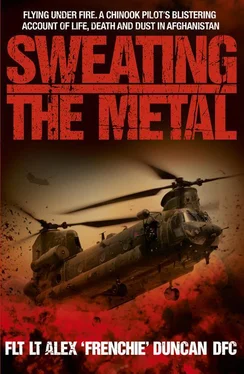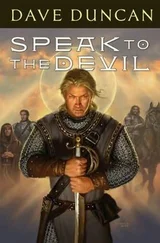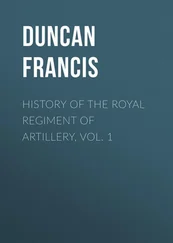I take a quick look and notice that I’ve actually lowered the lever to maintain my low altitude; I have spare power, but is it enough? The dam rises before us; it’s dead ahead. I pull the lever and take everything the engines have got, every last ounce of power. We climb, but it’s not enough. We’ll never make it.
‘You need to increase your rate of climb, matey,’ says Alex, a note of concern in his voice.
‘I know mate, but have a look at this,’ I say, with more confidence than I feel. It’s all or nothing now. I carefully apply some right pedal, tipping the aircraft 20° out of balance and therefore putting the airflow in the 10 o’clock of the disc, while still flying on the same track. Suddenly the cab’s rate of climb increases. Just like Old Bill Thompson – Million Dollar Bill – showed me.
We clear the dam by the barest of margins, but it doesn’t matter – a win’s a win – and as I resume straight flight, I’ve got enough power in hand to climb above the mountains around the lake. I can hear the cheers from the guys in the back even over the sound of the rotors and the whine of the engines. That’s twelve very happy souls back there.
‘Fuck me, Frenchie, that was close, but pretty impressive,’ says Alex.
‘Cheers mate.’ I feel a lift in myself that more than matches what the cab has given us. It’s been a long day; lots of flying hours and sectors ending with this. It’s thirty to forty-five minutes back to KAF, so I decide to keep the crew occupied on the way there. And there’s nothing like a game of Fuck, Marry, Kill to keep them on the ball…
‘Mélissa Theuriau, Lorraine Kelly, Kelly Brook,’ I say.
‘Oh for fuck’s sake, Frenchie,’ says Bob and I think for a moment that I’ve misjudged the mood. ‘You and that bloody Mélissa! Why can’t we play Fuck, Marry, Kill with girls that everyone knows?’
‘I don’t know, Bob,’ says Alex. ‘I’ve seen a picture of that Mélissa. Christ, the Daily Express called her the world’s most beautiful news reporter.’
‘How’d you know all this?’ Coops asks.
‘I looked her up on Google after Frenchie mentioned her on our last Det,’ says Alex. ‘She is one seriously fit woman. You don’t make it easy, do you Frenchie?’
‘You think thats tough try this,’ says Coops. ‘Ann Widdecombe, Margaret Thatcher, Harriet Harman!’
I shake my head. ‘You bastard!’
‘I feel sick!’ says Alex. ‘Seriously, Coops… that’s a perfect definition of being between a rock and a hard place!’
Anything that involves the whole crew is good and Fuck, Marry, Kill is a perennial favourite when we’re held off or on those long transits back to KAF or Bastion at height. Funnily enough, we find crews are much more likely to catch something happening on the aircraft when we’re doing this than if they are doing nothing. Anything that gets your brain ticking over is good.
The guys are happy, I’m happy, and we’ve got thirty-three happy soldiers in the back. Once again the Chinook has delivered more than expected and because of that, we’ve now got twelve troops who are going to be on a TriStar back home tonight.
‘Things on a Det don’t get any better than this,’ I think.
I have no idea how right I am.
Hindsight is a wonderful thing, isn’t it? Looking back, it’s so easy to see that the week or so following May 15th was unusual in the extreme but, at the time, there just seemed to be a marked increase in activity on the Taliban’s part. As it turned out, the series of seemingly unrelated events we experienced over that ten-day period were all part of a concerted effort by the Taliban to achieve a series of spectaculars; it was only down to an extraordinary degree of luck, daring, and some spectacular flying by the Chinook Force that they failed.
Over eight days, several cabs took rounds and an assassination attempt was made against Gulab Mangal, governor of Helmand Province, while I was flying him to Musa Qala. Also, the Taliban used a suicide bomber in a crowded market in a cynical attempt to lure a Chinook into a position where they could try and shoot it down.
Morris Oxford was the first to experience the Taliban’s renewed sense of purpose when he was diverted in the middle of a normal tasking day. He was flying with Greg Lloyd Davies as ‘Black Cat Two One’. They had just loaded some Canadian troops, along with some freight, when he was called by Bastion Ops over the radio. To many of us in the Chinook Force, his actions in the sortie that followed warranted a gallantry award and it’s inexplicable why he never received recognition. This is his account:
‘We were told by Bastion Ops to offload all our pax and await further tasking. It’d taken us the best part of twenty minutes to get them all loaded and then we kicked them all off again. That was not something we’d experienced before, so we were sat there thinking, “What the hell?”
‘We were told to get airborne, head north of the field and make contact with another call sign – Wildman One Zero, a Russian Mil Mi-8 (or “Hip”) twin-turbine transport helicopter that’s used by Afghan forces. We were then told to fly to an area just north of Sangin where we’d be performing an emergency extraction of some British troops on the ground there. They’d been inserted earlier that morning by the Wildman call sign and his wingman but they’d come under intense fire from the Taliban almost immediately, and had been involved in a rolling contact ever since – some eight hours by this stage.
‘An Apache had been tasked to support us and had gone ahead to provide air support for the troops on the ground, and us once we arrived on station. We held off to the west while we waited for a pair of RAF Harrier GR-9s to fly in and strafe the area. They stormed in and worked their magic, releasing a salvo of CRV7 rockets to take out some of the Taliban in the area, which can’t have been very pleasant for those on the receiving end – they travel at Mach 3 and make quite a mess on impact! After that, we were called in.
‘The HLS had been chosen by the ground call sign; it was a reasonably large open area in the middle of a village. Wildman One Zero decided he’d go in first, extract his troops and then we’d go in and extract those remaining. The guys on the ground were desperate – they’d been in a contact for eight hours plus, they were running low on ammunition and things were deteriorating rapidly. Despite the rocket attack by the Harriers, they had to fire and manoeuvre to get away. I don’t think they’d expected the weight of response that met them when they were first landed.
‘We got overhead so we were visual with the LS and stayed at height while the Hip made its approach. As it did so, it came under a barrage of heavy small arms fire. Just as it was about to land on, several RPGs were fired at it, missing by mere feet. It was awful to watch – to me, from height, they looked like fireworks, but a strike by any one of those warheads would have splintered the Hip into a million pieces. The pilot managed to overshoot at the very last second and come back up to height with us so we could carry out a visual inspection of his aircraft. I’ve no idea how, but he got away unscathed – given the weight of fire that was ranged at it, that was just astonishing. There was no way we’d be able to get into that HLS – it was just too hot. We had a quick discussion with the Hip, the Apache and the ground call sign and worked out an alternate plan to lift the troops from another LS.
‘We were trying to get them to move east about 500m away from the village and towards the desert area. They said it’d take them about thirty minutes. By this stage, we were almost bingo fuel, so we flew back to Bastion with the Hip to refuel; it was about fifteen minutes flying time there, fifteen on the ground for a hot refuel and fifteen minutes back – forty-five minutes in all. Luckily, the Apache had enough fuel to stay on station and provide support until we got back. That support must have been hell for both the Taliban and friendly forces because a lot of it was Danger Close. Being in the immediate vicinity of an Apache’s flechette rocket attack or 30mm cannon fire – even under cover – isn’t an experience I’d like to try. Despite the overwhelming suppressing fire, the Taliban fought on, and the ground troops barely had the breathing space to fire-and-manoeuvre their way to the new HLS. It must have been hell for them.
Читать дальше












